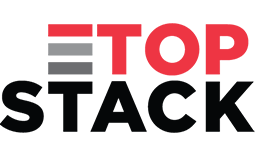Using The STAR Method in a Job Interview

Responding to behavioral questions during an interview may be one of the biggest challenges you will face. Behavioral interviews require you to share your skills by telling the hiring team about a time when you exhibited those traits. How you tell those stories will help land the job. But concise, compelling storytelling is a difficult thing to master. Fortunately, there is the STAR approach to help you nail the interview.
What is the STAR Job Interview Technique?
The STAR interview format can help guide your response to behavioral questions during the interview process. Following this framework will help you illustrate your skills by telling a real-life story about your work or life. STAR stands for Situation, Task, Action, and Result. When telling a story in response to an interview question, try to lay it out in the following manner:
- Set the situation with the details of the work environment, team size, and responsibilities. Share the complexities of the scenario and the challenges your team faced.
- Describe the tasks you were required to accomplish versus what your team handled. Be careful not to touch upon too much detail, or you’ll lose your audience.
- Explain the action you took to change the course of the project. What steps did you take to achieve your goals or solve the problem?
- Describe the result of your action, what you learned, and what outcomes occurred. How did the actions you took affect the overall outcomes of the project, your team, and the organization as a whole?
While you won’t be able to anticipate the interviewer’s exact question, think about some of your biggest accomplishments and the skills they illustrate. Have a few of these go-to responses in your back pocket in preparation for your next interview.
It’s very easy to go into a rambling monologue when asked a behavioral question. The STAR method helps you organize your thoughts and your response to an interviewer concisely and effectively.
When To Use STAR
Using STAR in response to behavioral questions is a great way to nail even the most challenging interview questions. You can spot these questions easily because they often follow a specific format that invites you to tell your story. For example:
- Tell me about a time when you…
- Describe a…
- What do you do when…
- Have you ever…
- Can you give me an example of…
The last thing you want to do is get caught during the stress of an interview with no idea how to answer behavioral questions. The STAR method can help you practice your response before the interview so you can perform well under pressure.
Practicing the STAR Technique
Before going to your next interview, it’s a good idea to look at the company values if they’re posted on their website. Those values may be the kinds of examples you’ll need to answer questions during the interview. You can also think about the job you’re applying for and consider the kinds of skills you’ll need to exhibit to do the job well. Then use the STAR method to come up with a few concise stories that will illustrate you have the skills it takes to do the job well.
The best way to practice STAR is to get out there and interview. Top Stack can help you land your next interview. Contact our team today to explore your options.

















